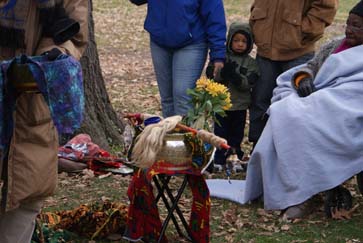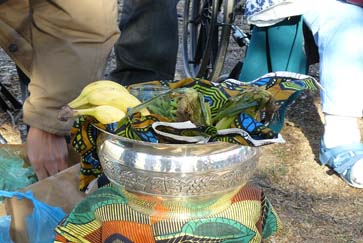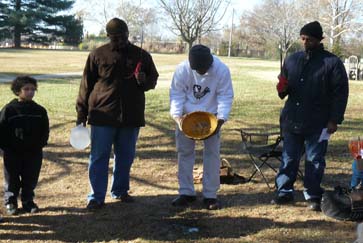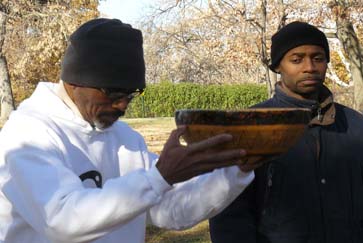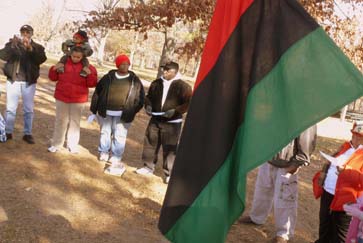 |
Masanyiko Ya Utani Background and History Afrikans and Native american people had connections with one another thousands of years before the europeans brought them back together as a part of the transatlantic slave trade. Nubians had visited western lands during the time of the Nubian empire. Travelers from West Afrika also visited the native civilizations during the Mali and Songhai civilizations. Afrikans and Native americans shared crafts, goods and culture. During those days we feasted with each other, gave thanks for our blessings and celebrated our connections and traded together. Masanyiko Ya Utani celebrates this historic time together and our united fight against european oppression. This connection is proven by the statues on western lands depicting Afrikan visitors with hair braided in cornrows, and Afrikan weapons and armor. It is still further proven by the finding of Afrikan cotton strands and tobacco seeds found on Native american soil and Native american cotton strands and tobacco seeds found in Afrika dating back hundreds of years before europeans knew how to build ships that could travel the seas. The first usa “Thanksgiving” feast was held in 1621 and included the Plymouth pilgrims from europe, Afrikans held in
bondage by the pilgrims, and the Wampanoag who were indigenous to that area. The knowledge of horticulture and husbandry
these Afrikans and Wampanoag held was critical to the pilgrim’s survival. In thanks for this help, the pilgrims over
time infringed upon native land and made the enslavement of Afrikans a permanent part of the colonies’ culture and economy.
Those Native american groups who survived this european imperialist invasion were made refugees on their own
land, then later placed on reservations and politically disenfranchised. Simultaneously, additional Afrikans were brought to
work for free on this stolen land. Thanksgiving, which is in the harvest feast tradition, in effect, celebrates the disenfranchisement Though united in trade in the past, this new exploitation and oppression of both Afrikan and Native americans caused the two groups to unite in a common armed struggle. Afrikans running from slavery joined Native villages whose people were seeking freedom from european aggression. The two groups joined to wage armed struggle against european military forces. The Seminoles in Florida were said to have so many Afrikans freed from bondage joining them that many of their settlements were composed of all Afrikans. How to Celebrate |
|
